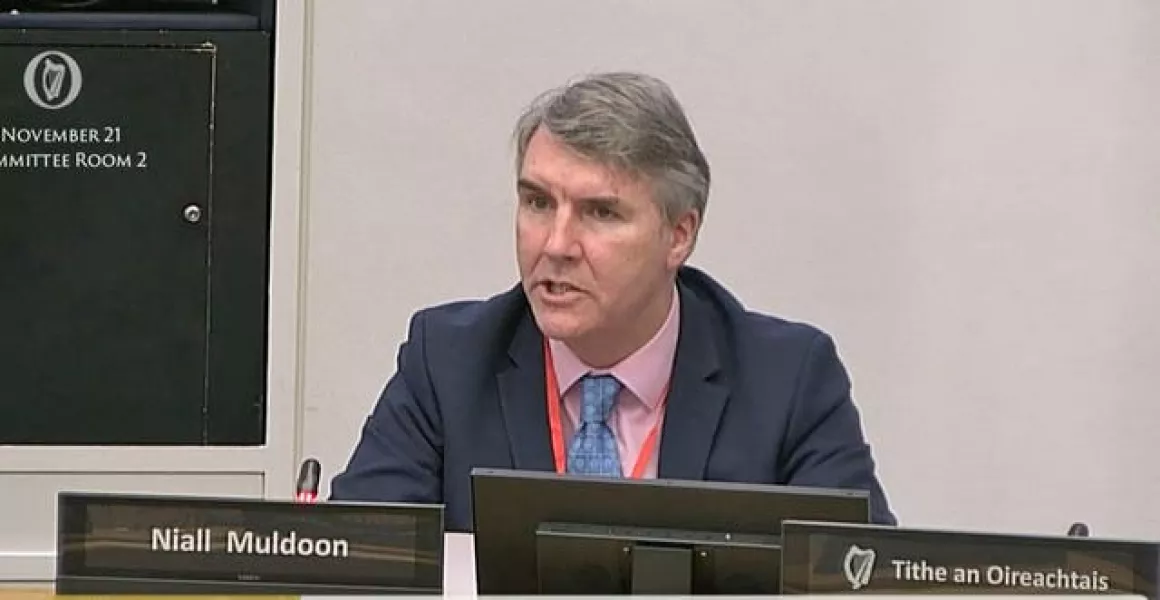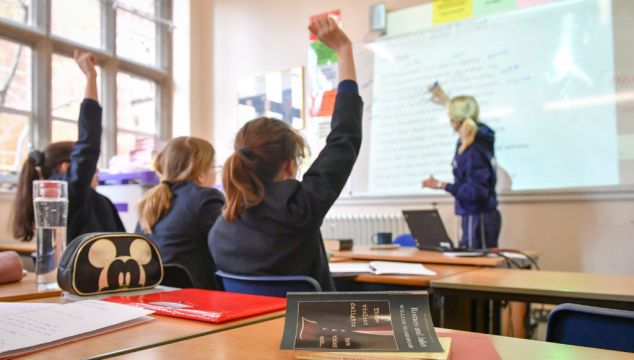Limiting a child’s educational options over a lack of family links to a school has been described as the epitome of “intergenerational disadvantage and discrimination”.
A clause that favours the children and grandchildren of past pupils for school places has been widely criticised.
Rules which came into force for admissions last year allow 25 per cent of school places to be reserved for children or grandchildren of past pupils.
Labour has put forward a Bill that would change the School Admissions Act and remove the controversial clause.

Ombudsman for Children Dr Niall Muldoon said that children have a right to be protected from discrimination and harm.
He said that children should only experience differential treatment if there is a reasonable or objective basis for this, and it is consistent with children’s rights and best interests.
“The priority given to children or grandchildren of past pupils of schools cannot be seen to be a reasonable or objective basis for treating children differently,” he told the Oireachtas education committee.
“We believe that schools should be fully inclusive and promote equality. Education can be a way out of disadvantage for many students.
“Yet this provision seems to say that children who had parents and grandparents who went to a particular school, can get priority in obtaining a school place. This is undoubtedly leading to a continuing cycle of disadvantage for some children.”
Aine Lynch, CEO of the National Parents Council, said any legislation that allows for the discrimination of children within communities must be amended.
“At the core of these communities are our schools and what happens within a school shapes the communities around them,” she added.
“Who gets access to a school and who doesn’t says something to the community around it.
“Ensuring that a school’s admission policy provides and is seen to provide equity of access for local children to their local school, must be a priority.”
Suzanne Connolly, CEO of Barnardos, said: “Limiting a child’s educational options due to having parents or grandparents who they themselves had limited options is the epitome of promoting intergenerational disadvantage and discrimination.
“A child’s educational options should never be negatively affected by the education of their parents and grandparents.”
Dr David Doyle, associate professor of law at Maynooth University, said: “What’s problematic about this particular provision is that it is virtually impossible for certain minority groups to meet the criteria.
“My argument would be that, any criteria which is virtually impossible to meet is fundamentally discriminatory, so that should be removed.
“Whatever about a chance of a lottery, if everybody has an equal opportunity of gaining a place, at least it is fair.”
Dr Muldoon said figures have not been provided to show how prevalently the admissions criteria is being used across the country.
“One child discriminated on this basis is too many,” Dr Muldoon added.
“We’re in situations where this will be perpetuated for the children who are coming from direct provision, who are from abroad, their parents will not have reached the criteria.
“They are going to be disadvantaged for the next two generations. So we need to make sure that we stamp it out and are now moving to a situation where it’s much more available to all the children.
“The idea for education is to be local, available to those who are living here.”

He added that moving to a lottery concept would provide an equal opportunity to all children.
Ms Lynch said the clause in the admissions criteria “sets a tone” in society that allows children to face an unfair disadvantage.
“I think the tone as a society that we are setting and the communication to children and families within communities is that they’re not allowed within this level of school,” she added.
“I think it is a very dangerous one for us to continue to have.”
Dr Muldoon also said many groups of children are “two steps” back because of the clause and it will affect future generations.
“If your parent or grandparent now today has not gone to that school, you won’t get into that school. So your child, and your grandchild won’t get into that school,” he added.
“Straight away, you can see four generations being affected. That’s discrimination by its very essence.”
Labour TD @AodhanORiordain very critical of admissions criteria for schools based on "generational bloodline".
He told the Joint Education Committee that the criteria contained in the Education (Admissions to Schools) Bill is "elitist".— Cate McCurry (@CateMcCurry) February 8, 2022
Labour education spokesman Aodhan O Riordain said the clause is “elitist”.
“I believe there was a disproportionate influence over the admissions, built by a certain sector, that wanted to keep this generational bloodline of succession within their schools,” Mr O Riordain added.
“Even if one child was under the rough end of this provision because their father or grandfather, or mother or grandmother didn’t attend school, I think that knowledge of that child would probably sit with that child for life.

“It would make that child feel for life that they just weren’t the same because her father or grandfather or mother or grandmother didn’t have the same opportunities.
“If you’re trying to break through poverty, education is your only chance.
“It is so wrong, it is so elitist and it goes against anything that education is supposed to achieve.”







